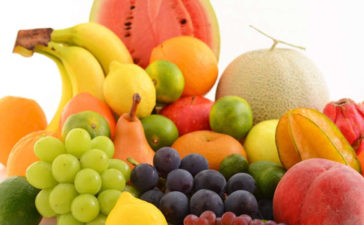Lucknow : Chilly winter weather affects more than just your wardrobe and heating bill. Your body also experiences changes in energy levels, metabolism and even food prefer
Yes, winter is coming. With the changing season, it is also imperative that we modify our diet and turn to seasonal winter vegetables to load up of essential nutrients and also safeguard our body from within.
There are various other winter fruits and vegetables with higher value of nutrition that you should include in your daily diet .
Spinach: Like tomatoes, spinach contains antioxidants that combat free radicals. It also contains a great deal of potassium which increases the speed of signals between neurons, helping our brains to be more responsive. It is also full of vitamin C, which helps the body fight infection and increases the levels of antioxidants in the body.
Pomegranate
Pomegranate juice is rich in antioxidants (more so than other fruit juices)—just a cup daily might help to keep free radicals from oxidizing “bad” LDL cholesterol.
Sweet potato
Sweet potato contains a massive 65 percent of the minimum necessary daily amount of vitamin C, while also having a very low glycemic index of 17. Sweet potato is rich in dietary fibre, which helps to reduce blood sugar and insulin spikes, ultimately reducing belly fat.
Apples
Their ability to keep well long after harvest makes apples perfect for the winter months. According to the USDA’s food nutrient database, one medium apple contains 95 calories, a fair amount of vitamin C, and more than 4 grams of fiber. This crunchy fruit may also be good for your heart.
Citrus
Citrus fruits, including lemons, limes, oranges and grapefruit, are at their juiciest in the wintertime and can add sunshine to the dreary winter. Citrus fruits are loaded with vitamin C—one medium orange delivers more than 100 percent of your daily dose.
Beans
Beans are a great source of nutrition. They contain lysine, an essential amino acid which helps the body convert fatty acids into energy and helps to lower cholesterol. They also contain folate, a B vitamin which affects neurotransmitters that can boost your mood.
Aubergine
Aubergines are rich in minerals such as potassium which is good for metabolism, and magnesium which helps to relax your muscles and can aid in improving your sleep. If you lack vitamin B and K this is a good vegetable to opt for, and make sure to keep the skin on if you would like extra nasunin, a potent phytonutrient and antioxidant which has anti-ageing properties.
Winter squash
There are many varieties of winter squash—including butternut, acorn, delicata and spaghetti squash—and they are all excellent choices in the winter. One cup of cooked winter squash has few calories (around 80) but is high in both vitamin A (214 percent of the recommended daily value) and vitamin C (33 percent), as well as being a good source of vitamins B6 and K, potassium and folate.
Kiwi
This fruit is a lot more nutritious than you realize. With more vitamin C than an orange and more potassium than a banana, a serving of kiwi can do your body good. Though you can use kiwi to make jam, the flavor is best when left raw.
These are few of the vegetables that you must include these winters in your diet .






